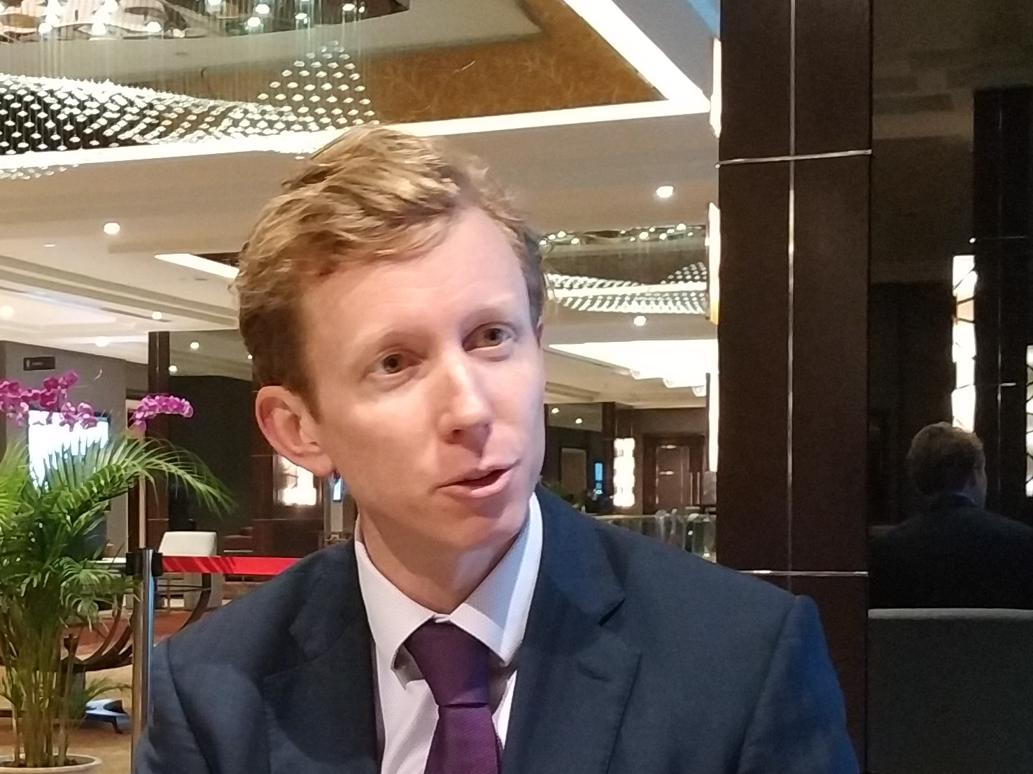KUALA LUMPUR, May 27 — New medicines may only be sold here five years after their United States launch if Malaysia continues breaching drugmakers’ intellectual property (IP) rights, a US think tank said.
Nigel Cory, associate director of trade policy at the Information Technology and Innovation Foundation (ITIF) based in Washington DC, cited a 2014 study by the US’ National Bureau of Economic Research that found countries moving from a policy of “no product patents” to “long product patent terms” reduced lag times for new drug launches by 55 per cent.
“The compulsory license impacts health care services and outcomes in Malaysia,” Cory told CodeBlue in an interview.
A compulsory license for pharmaceuticals is a process where a government allows someone else to produce generics of a drug without the original drugmaker’s consent.
The previous Barisan Nasional (BN) administration used a compulsory license to enable an Egyptian company to manufacture and export to Malaysia a much cheaper generic version of Hepatitis C medicine sofosbuvir by Gilead Sciences to be used in Ministry of Health hospitals.
BN had rejected the US pharmaceutical company’s voluntary license offer that would still allow for generics, but on Gilead’s terms.
“There’s a sizeable gap,” Cory said, referring to the five-year delay in new drug launches in Malaysia if drugmakers’ patents are broken.
“And that has a sizeable impact on patients who could have otherwise benefited from those drugs in that five-year window.”
The study quoted by Cory, which examined 642 new drug launches in 76 countries from 1983 to 2002, found that longer and more extensive patent protection hastened a launch while price regulation strongly delayed it.
But the research also noted that these same policies that promote faster drug launches — stronger patent rights and the lack of price regulation — are also those that make medicines more expensive.
Cory said compulsory licensing would be a central factor in the Office of the United States Trade Representative’s (USTR) consideration on whether to put Malaysia on a “priority watch list”, ahead of USTR’s out-of-cycle review on Malaysia, an evaluation on IP issues of concern, that is due in July.
Being placed on a priority watch list will not lead to US economic sanctions against Malaysia, Cory said, but it will become a trade issue.
“It becomes a barrier to greater trade and investment between the two sides.”
He pointed out that US President Donald Trump has criticised foreign governments for “free-riding” on American investment in the pharmaceutical industry. The Trump administration last year reportedly blamed high drug prices in the US on other countries who do not pay their fair share. Drug prices are negotiated or regulated even in rich European nations.
The Pharmaceutical Research and Manufacturers of America (PhRMA), which represents the US’ pharmaceutical research companies, said in its Special 301 submission last February to the USTR that Malaysia should be designated a “priority foreign country”.
PhRMA accused Malaysia of using an “unjustified” compulsory license for sofosbuvir even while the drug manufacturer was negotiating with Malaysia on a voluntary license.
“If not met with a forceful US government response, this action carries significant risks of contagion to other markets, which would significantly undermine the current R&D (research and development) model for innovative medicines on which the US pharmaceutical industry and patients around the world rely.”
Cory said Malaysia’s use of a compulsory license has made US pharmaceutical firms reluctant about investing in R&D in Malaysia, pointing out declines in R&D investment by pharmaceutical companies by 34 per cent and 75 per cent in Canada and Brazil respectively after these countries undermined drug patents.
In Colombia, Colombia’s Biotech Association told think tank ITIF that registered clinical trials dropped by 60 per cent over the past five years, partly due to fear over compulsory licenses.
“If Malaysia wants to position itself as a knowledge-intensive economy that engages in the type of research and development to help it close the gap and become an advanced economy, it needs to recognise that IP is a critical part in closing that gap,” Cory said.
The new Pakatan Harapan administration has continued BN’s compulsory license policy, with a joint venture between Egypt’s Pharco Corp and local pharmaceutical company Pharmaniaga planning to produce a generic drug, ravidasvir, in Malaysia by year end or March 2020. Ravidasvir is used in combination with sofosbuvir to treat Hepatitis C.
Cory also said IP should not be blamed as the sole barrier to access to drugs, pointing out that 40 per cent of the World Health Organization’s (WHO) list of essential medicines were unavailable in many developing countries, even though 95 per cent of drugs on that list are not patented.
“IP is one part of health care cost. What are the factors and other options to try and negotiate a better bulk price involved in the drug, instead of attacking the IP that’s at the heart of it?”
When pointed out that Malaysia may not be able to afford certain drugs (the World Bank classifies Malaysia as an upper middle income country), Cory said “free-riding” on pharmaceutical investments was prioritising short-term over long-term benefits.
“You’re undermining the development of the next generation of medicine. Does Malaysia want to play a role in developing that next generation and benefiting from it as well?”








